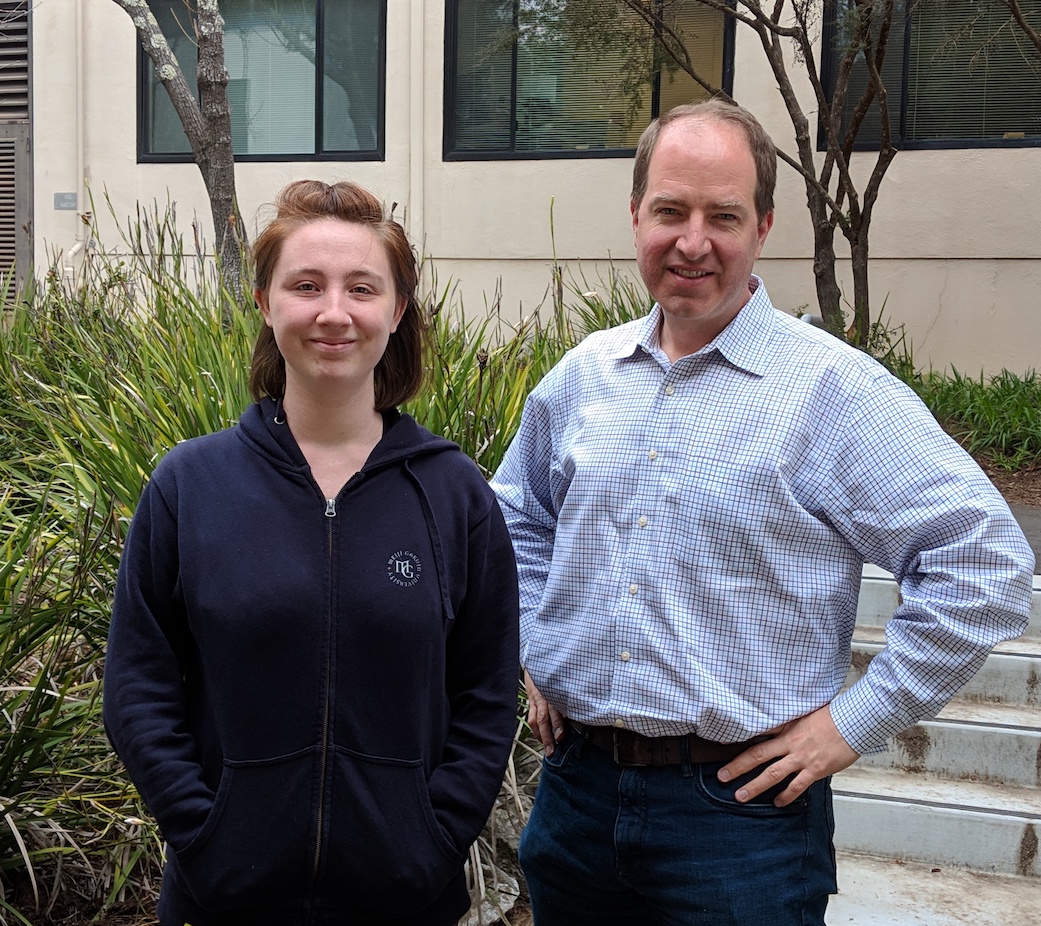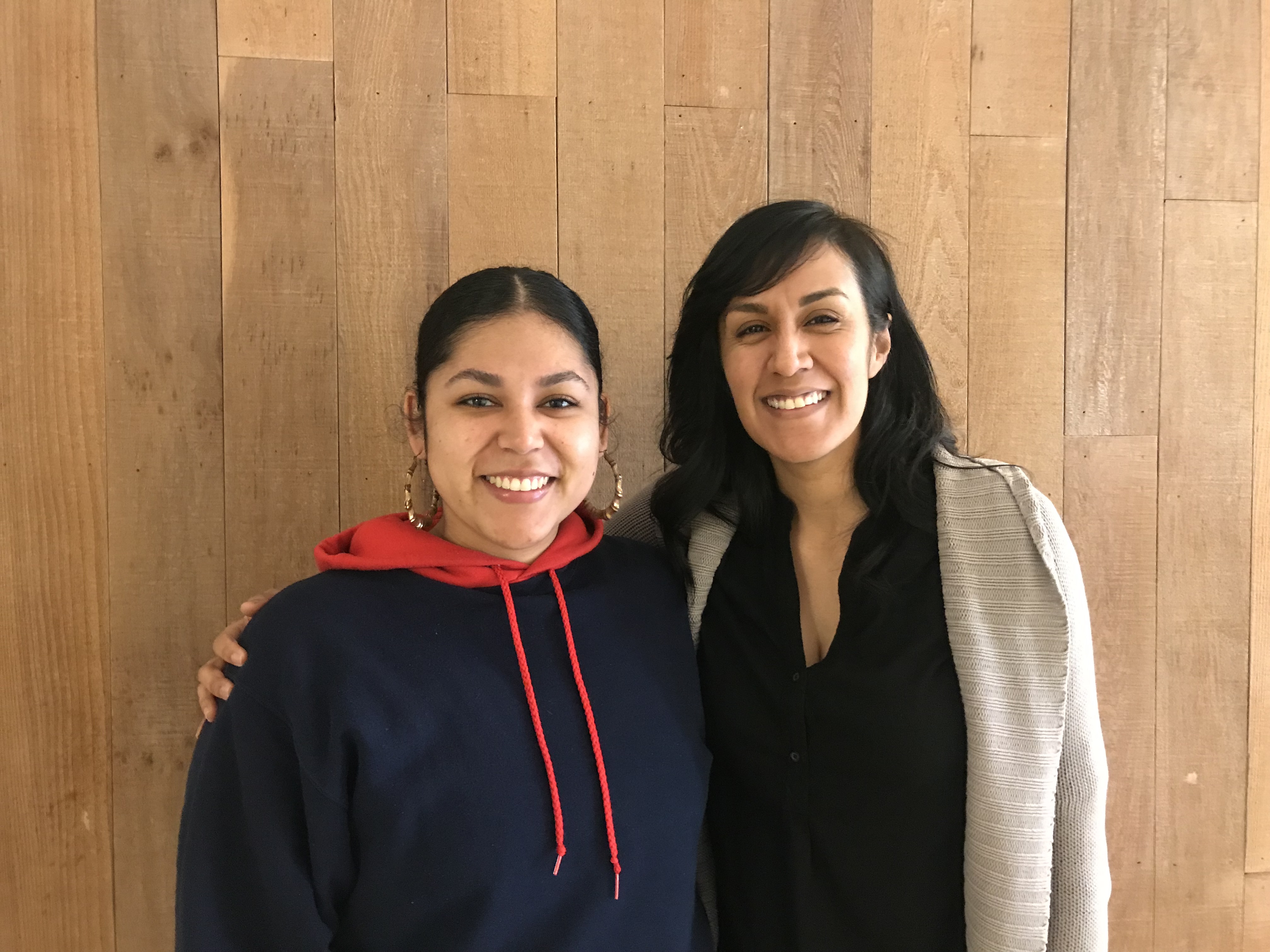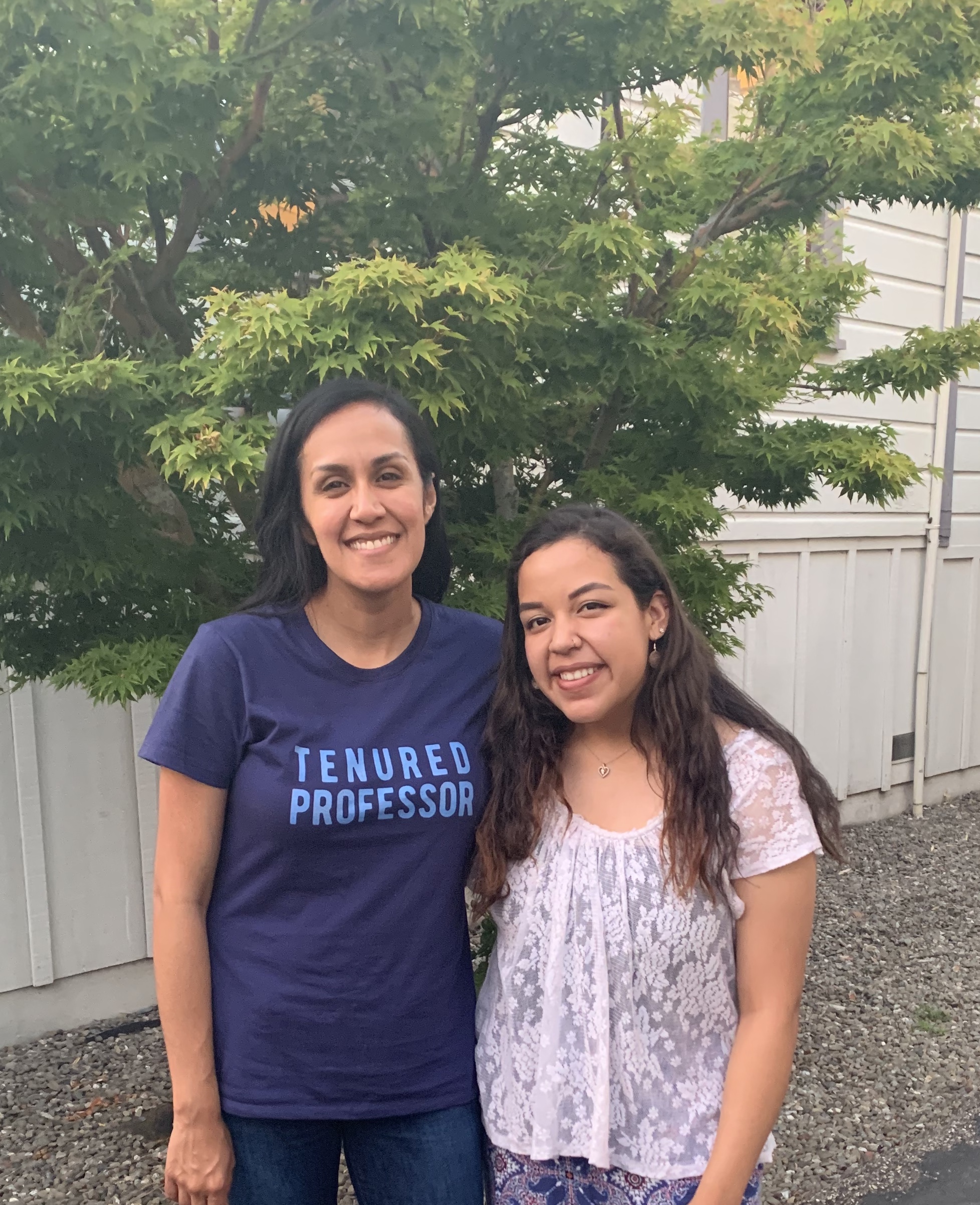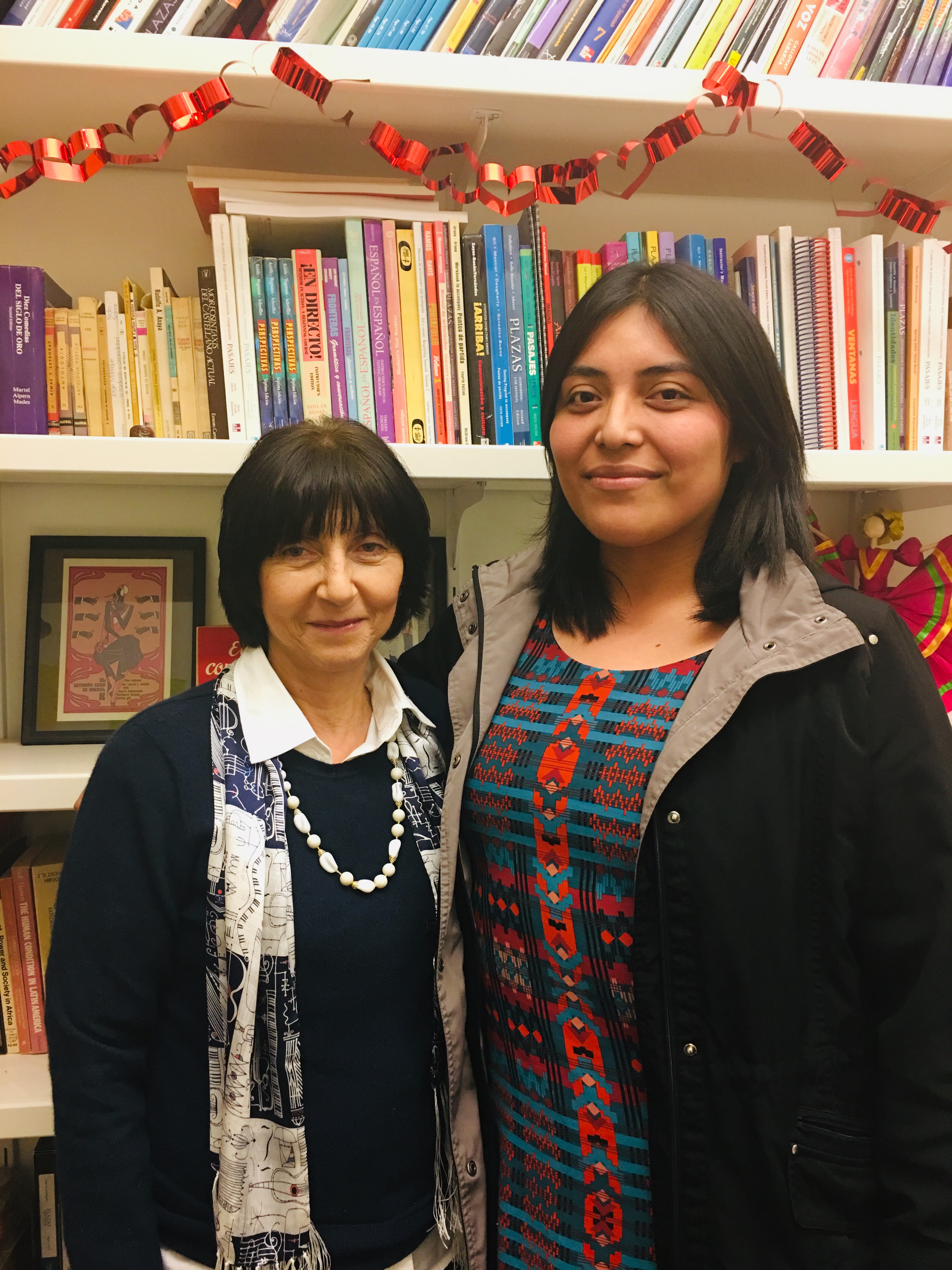2018-2019 Mentorship Participants
 H. Ann Browning:
H. Ann Browning:Merrill Fellow Ben Read:
Benjamin L. Read is an Associate Professor of Politics at UC Santa Cruz whose work explores local politics in China and Taiwan. His book, Roots of the State: Neighborhood Organization and Social Networks in Beijing and Taipei (Stanford University Press, 2012) used surveys, interviews, and participant observation to compare the ways in which constituents perceive and interact with the urban administrative structures found in China, Taiwan, and elsewhere in the region. With Diana Kapiszewski and Lauren Morris MacLean, he is
Project Description:

Janely is a third-year undergraduate student double majoring in Psychology and Latinx Studies. Janely, as a child of Mexican Immigrant parents, is the first in her family to attend college. As a future
Project Description:
In educational settings, deficit thinking suggests that student failure is a matter of individual initiative, placing the onus of responsibility on the student and failing to consider structural factors that can impede performance (Valencia, 1997). There is scarce work documenting how educators endorse these forms of deficit thinking in both STEM and university settings. In collaboration with Learning Support Services, Janely will help with a project that seeks to understand the attributions that educators (e.g., undergraduate tutors) make for struggle and failure. Janely will code open-ended responses to explore tutors’ attributions for
Janely was awarded the opportunity to present her research at the 2019 SACNAS Conference held in Hawaii.

Rebeca
interested in investigating how the anti-immigrant climate has impacted resources, retention, and feelings of belonging for undocumented students in higher education. Since her first year, Rebeca has researched various aspects of this question throughout her involvement in research programs, labs, and seminars. As a first-generation Central American immigrant, Rebeca feels strongly and passionately about activism that uplifts marginalized communities. Research is one of the many forms of activism in which she believes that we can come together and push for social change. With love and commitment to her community, Rebeca aspires to become a school social worker that serves students from under-resourced schools in downtown Los Angeles. She hopes to live the rest of her life helping underrepresented communities overcome any and all barriers they encounter. In her free time, she really enjoys listening to music and going to concerts as a form of self-care. Some of her favorite artists are Frank Ocean,
Rebeca’s project description:
The UCSC Hispanic Serving Institution (HSI) Initiatives aim to cultivate a sense of belonging and a pathway for success for students from diverse backgrounds, with a particular focus on Latinx students. One critical HSI initiative is the Regional Family Conference, a free, half-day conference that provides workshops and programming on the college transition experience for Latinx first-generation college students and their families. In collaboration with HSI, we will evaluate the effects of this conference using open-ended responses and interviews from students and families. Rebeca will be focusing on analyzing and coding these qualitative data. Currently, Rebeca has played a critical role in transcribing interviews and in beginning to develop a codebook of themes. Throughout this year, she will continue to attend focus groups with students and transcribe interviews. Rebeca will also be instrumental in entering, preparing and cleaning quantitative survey data from students and families. The overall goal of this work is to assess how the conference helps facilitates the cultural transition to college for Latinx first-generation students and their families. Rebeca’s efforts on this project will support the goals of our research lab and the larger work with HSI.
-------------------------------------------------- 
Sonia Arzola:
Merrill Fellow Maria Victoria Gonzalez Pagani:
María Victoria González Pagani has been a faculty member at UCSC since 1992. She previously taught at the University of Illinois at Chicago, Northwestern University and the University of Michigan at Ann Arbor. She is a Merrill fellow and a member of the Languages and Applied Linguistics
Project Description:
As part of a larger project, Sonia will be researching different approaches to topics of her interest in Spanish syntax and morphology which present challenges to teaching. She will learn how to turn the theory into clear pedagogical explanations. In addition, she will collect samples that illustrate actual language use related to these topics. Together we will prepare a battery of pedagogical materials that will be very useful for the students in the Spanish Studies major.
--------------------------------------------------
Geneva Monteleone:
Geneva Monteleone is a
Merrill Fellow Eva Bertram:
Eva Bertram is an Associate Professor in the Politics Department at UCSC. She studies American politics, public policy, and political economy. Her areas of research focus include economic inequality, poverty, and social policy. Her published works include two books: The Workfare State: Public Assistance Politics from the New Deal to the New Democrats, and Drug War Politics: The Price of Denial. She serves on the Board of Directors of the Community Action Board for Santa Cruz County, and on the Advisory Board of the UCSC Blum Center on Poverty, Social Enterprise, and Participatory Governance. Before joining the UCSC faculty, she worked for more than ten years in Washington, D.C. in the nonprofit sector and for a congressional committee. She received her Ph.D. in Political Science from Yale
Project Summary:
Geneva and Professor Bertram will work together on two parallel lines of Professor Bertram’s research on poverty, inequality, and work in the United States. The first examines the causes and consequences of the rise of contingent and non-standard work in the context of growing economic inequality. The project seeks to historicize and politicize these trends, by examining contingency and precarity not simply as the outcome of market forces, but as politically contested and facilitated by state actors and institutions, who over time have determined the regulatory and legal contexts that govern work. Geneva’s interest in this subject grows in part from her experience in studying zero-hour contracts and related issues in the United Kingdom. The second project examines poverty in Santa Cruz
--------------------------------------------------
Stephanie Perez: Stephanie Perez is a 4th year Legal Studies major, also minoring in History. She plans to attend law school after graduation. Her interests include the history and development of U.S. law and how it has been influenced and shaped by society. Her current senior capstone project focuses on constitutional law and examines the legal consciousness of ordinary citizens in relation to first amendment protections, specifically the establishment and free exercise clauses. Recently, she has begun to explore how U.S. law influenced or interacted with legal frameworks and societies outside of the U.S. Her mentorship with Professor O’Hara and work related to this project will help her explore these connections.
Merrill Fellow Matt O' Hara:
Matt O'Hara is a historian of Latin America with a focus on early
Project Summary:
Stephanie Perez and Professor O'Hara will be working through primary sources related to O'Hara's new project on botanical exploration and pharmaceutical research in the Ecuadorian and Peruvian Amazon in the middle twentieth century. Stephanie will develop skills related to a large-scale research project: organizing thousands of pages of archival documents, developing a research plan-timeline, reading and contextualizing primary sources, and refining questions. Drawing on her own interests in ethnohistory and legal studies, Stephanie is also working on a research paper related to the topic.
--------------------------------------------------
Gabriella Fouche:
Hi there! My name is Gabbie Fouché and I am a third year applied linguistics major. I love learning languages, and over the years I have spent time learning French, Portuguese, and bits of American Sign Language, Italian, and Spanish. As learning about languages and different cultures has always fascinated me, so I was thrilled to get the opportunity to work with Zsuzsanna Abrams on such an amazing project regarding Intercultural Communication. I have been working with Professor Abrams to help her write her more recent book. I aid her by cataloging resources and reasing over the drafted chapterws for clarity and flow. After taking her course on Intercultural Communication back in Fall 2018, I knew that the subject was important to research, and was elated to find that I could play such an impactful role in producing comprehensible learning material to expand the field.
Merrill Fellow Zsuzsanna Abrams:
Zsuzsanna Abrams is an Associate Professor in the Department of Languages and Applied Lingusitics. She earned her Ph.D. in Second Language Acquisition and Teaching. Her research and teaching focus on applied linguistics with a special focus on development in German as a foreign language, on writing in a second language, computer-mediated communication and pragmatics. Her research has been published in the Modern Language Journal, Computer Assisted Language Learning, and System among other peer-reviewed journals.
Project Summary:
The book project that this Merrill scholarship supports focuses on the use of authentic materials to teach intercultural communication in the second/foreign language classroom. The book guides readers (advanced undergraduate and graduate students who want to be language teachers) – and through them, their students – to view intercultural communication as a dynamic process that is dependent on the culturally complex individuals who co-construct interactions. There is special emphasis on recognizing culture as layered experience, whereby we embody an intersection of multiple cultural groups to which we belong. Understanding culture as layers helps us identify which aspects of culture are salient in particular interactions, increases our awareness of and skills to navigate intercultural communication more effectively.
As this book project nears its completion, Gabbie’s contributions are essential in several ways. She is helping me organize references, using the Mendeley application and double-checking resources in Google Scholar. Additionally, she helps proof-read and copy-edit the chapters, making suggestions regarding interesting questions and activities that the book’s target audience might be interested in. As part of the project, Gabbie will also learn how to collect, transcribe and analyze multimodal data from instances of intercultural communication.
